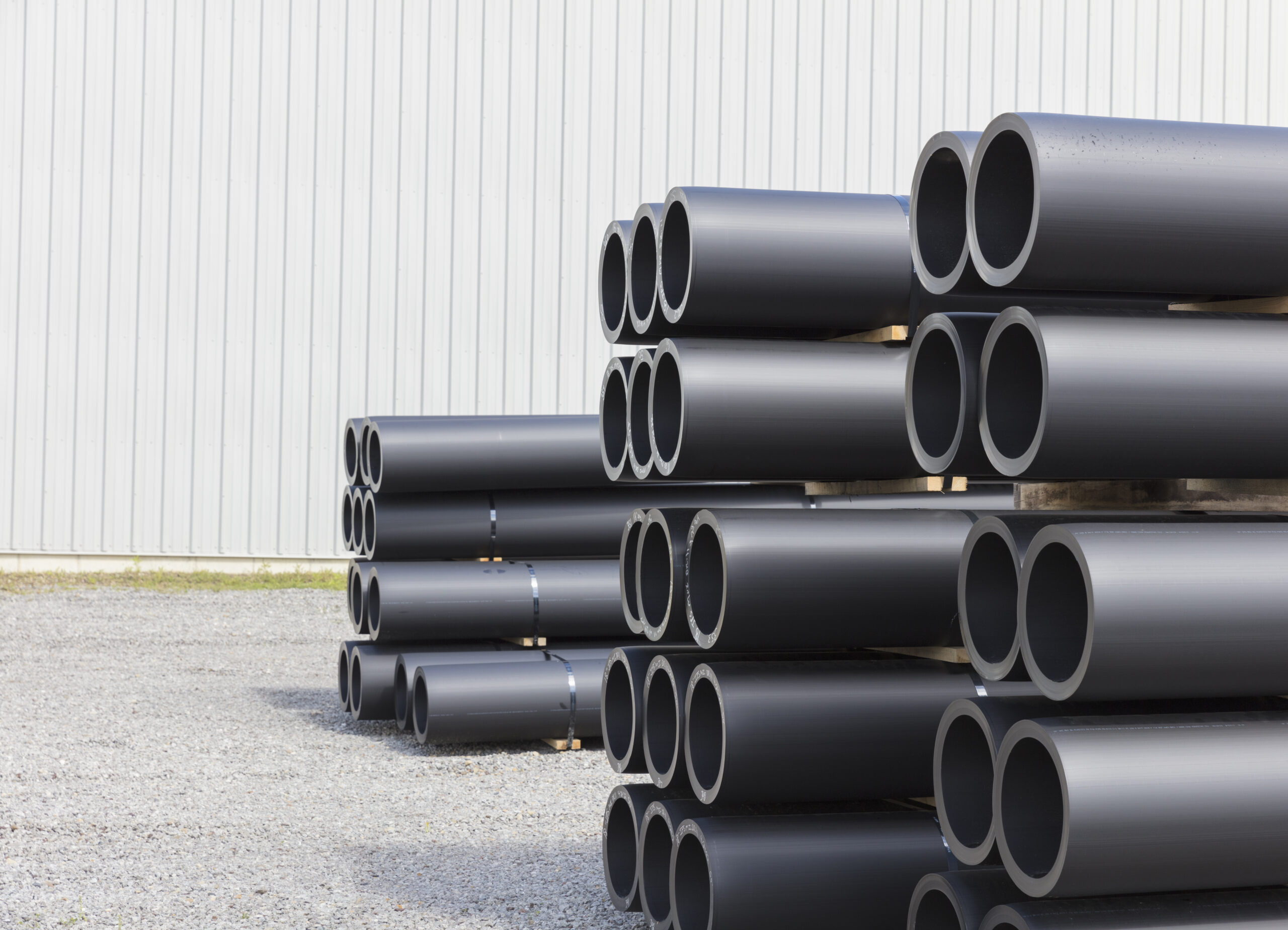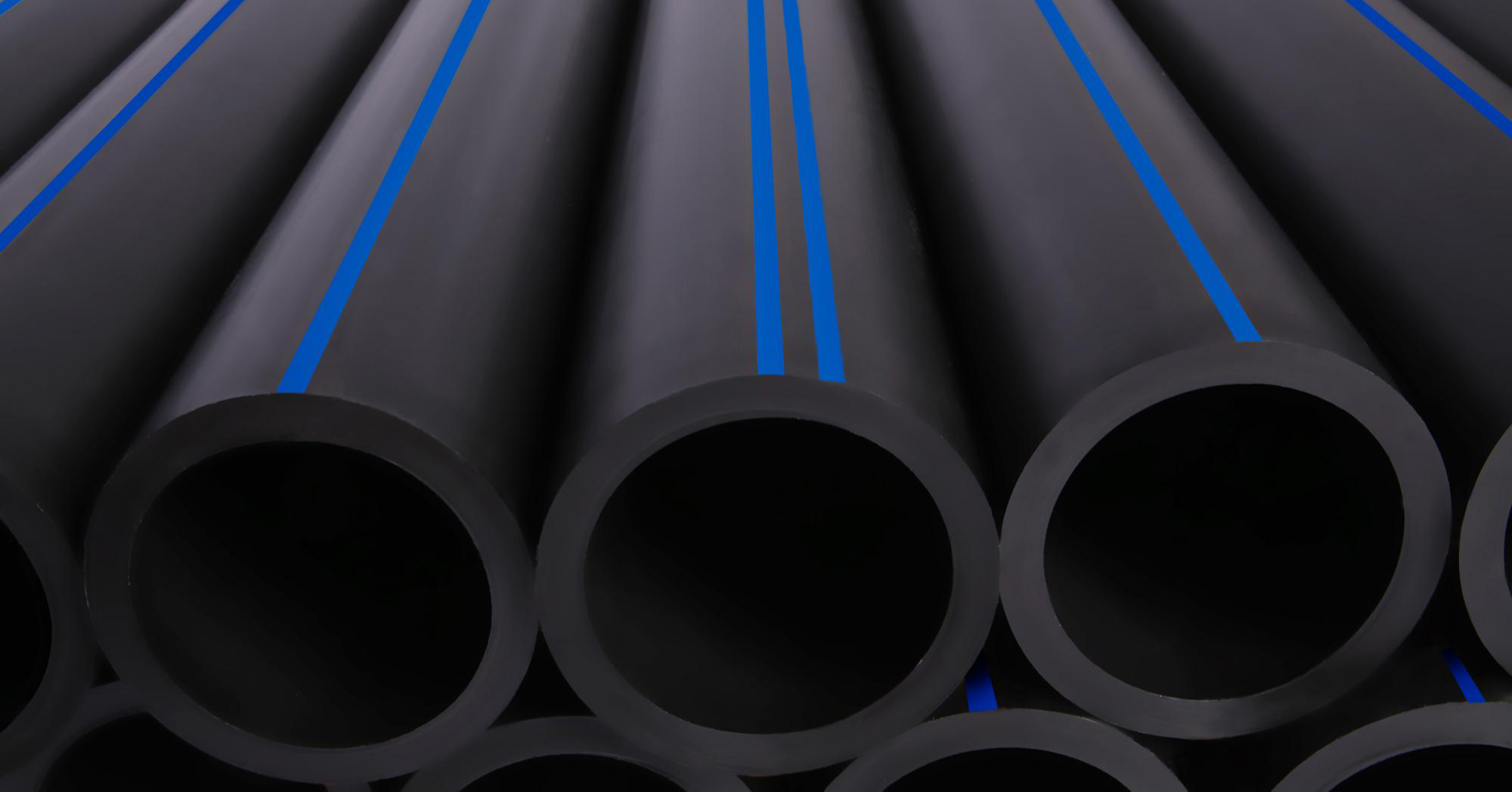Comprehending the Trick Advantages of HDPE Pipe for Water and Wastewater Administration
Using HDPE pipe in water and wastewater monitoring provides countless advantages that merit factor to consider. Its remarkable sturdiness and long life expectancy make it a recommended option for numerous tasks. Furthermore, the product's resistance to rust and chemical damage improves its integrity in numerous environments. The benefits extend beyond just long life and resistance. American Plastics HDPE Pipe Manufacturing. Discovering its cost-effectiveness and ecological effect exposes even much more compelling factors for its prevalent adoption in contemporary infrastructure
Exceptional Sturdiness and Longevity

HDPE pipeline stands out for its remarkable toughness and durability, making it a favored choice in water administration systems. Created from high-density polyethylene, these pipes can hold up against considerable pressure and anxiety, guaranteeing trustworthy efficiency gradually. Their robust nature permits them to sustain extreme environmental conditions, consisting of temperature level variations and dirt activities, which can cause various other products to fail.
The life-span of HDPE pipes typically goes beyond half a century, providing an affordable remedy for communities and markets alike. Additionally, the material's lightweight properties simplify installation, minimizing labor prices and durations. This sturdiness lessens the need for constant repairs or replacements, additionally boosting its economic allure.
In water administration applications, the integrity of HDPE pipes implies less disturbances and enhanced service connection, making them indispensable to sustainable facilities advancement. The mix of sturdiness and longevity strengthens HDPE's role as a foundation in effective water administration options.

Resistance to Corrosion and Chemical Damage
While several materials succumb to deterioration and chemical damage with time, HDPE pipelines display amazing resistance, making them optimal for numerous water management applications. This resilience comes from the molecular structure of high-density polyethylene, which is inherently non-reactive and does not wear away like metals or weaken from exposure to harsh chemicals. As an outcome, HDPE is extremely effective in settings with hostile materials, such as wastewater systems that may include acids, bases, and natural solvents.
Additionally, HDPE pipes can withstand environmental elements such as soil acidity and saline conditions, further improving their suitability for varied applications (hdpe pipe suppliers Midland TX). Their capability to maintain architectural honesty gradually minimizes the threat of leakages and failings, which is vital in guaranteeing the safety and dependability of water circulation and wastewater monitoring systems. The resistance to rust and chemical damages considerably adds to the total performance and long life of HDPE piping solutions.
Cost-Effectiveness and Economic Advantages
When thinking about the financial effects of water monitoring systems, the cost-effectiveness of HDPE pipelines becomes obvious. These pipelines use lower installment and maintenance prices compared to conventional materials like metal or concrete. Their lightweight nature streamlines transportation and setup, causing minimized labor expenses. In addition, HDPE pipes show a lengthy lifespan, usually exceeding half a century, which equates to fewer substitutes and long-lasting financial savings.
The resistance of HDPE to corrosion and chemical damage minimizes the demand for costly repair work and substitutes. The pipelines also support effective water circulation, reducing power expenses connected with pumping systems. By reducing leakages and water loss, HDPE pipes add to substantial financial advantages for communities and industries alike. On the whole, the first investment in HDPE piping can produce significant economic returns over the life-span of the water management system, making it a sensible selection for sustainable infrastructure advancement.
Ecological Sustainability and Lowered Impact

Versatility and Flexibility in Installation
Due to the fact that of their special residential properties, HDPE pipelines supply impressive convenience and flexibility in installation, making them suitable for a large range of applications. Their lightweight nature enables easier handling and transport, decreasing labor costs and setup time. HDPE pipelines can be curved and shaped to fit different terrains and project needs, which is particularly advantageous in challenging environments.
In addition, their resistance to corrosion and chemical damage enables for installation in varied settings without the need for specialized safety finishings. The ability to fuse joints creates a continuous, leak-free system, improving the overall honesty and integrity of the installation. HDPE's versatility also suits ground motion, minimizing the threat of damage in locations vulnerable to shifting soil. In general, these qualities make HDPE pipes not only functional but also a favored choice for water and wastewater monitoring systems.
Frequently Asked Inquiries
How Does HDPE Pipeline Contrast to PVC in Water Management Applications?
HDPE pipe offers exceptional flexibility, resistance to deterioration, and durability compared to PVC. Its lighter weight facilitates less complicated installation, while its long life expectancy lowers substitute prices, making HDPE a favored choice in water administration applications.
What Is the Life Expectancy of HDPE Piping Under Typical Problems?
Under common conditions, HDPE pipelines can have a life-span ranging from 50 to 100 years. Their longevity and resistance to rust contribute to their lasting efficiency in different applications, making them a reputable selection for infrastructure.
Are HDPE Water Lines Recyclable After Their Service Life?
Yes, HDPE pipelines are recyclable after their service life. hdpe pipe fittings Midland TX. They can more info be refined and repurposed into brand-new products, significantly minimizing ecological influence and advertising sustainability within the market, making them an eco-friendly option for piping remedies
What Is the Installment Refine for HDPE Pipes?
The installment procedure for HDPE pipes involves website prep work, trenching, pipe fusion or mechanical joining, backfilling, and stress screening. Proper methods assure a resilient and reliable system for carrying water and wastewater effectively.
Can HDPE Piping Be Made Use Of for Both Drinkable and Non-Potable Water Equipments?
Yes, HDPE pipes can be used for both drinkable and non-potable water supply. Their convenience, sturdiness, and resistance to corrosion make them suitable for various applications, ensuring safe and effective transport of water in different contexts.